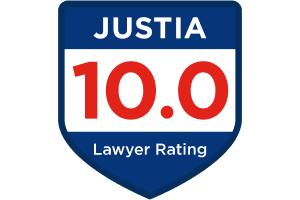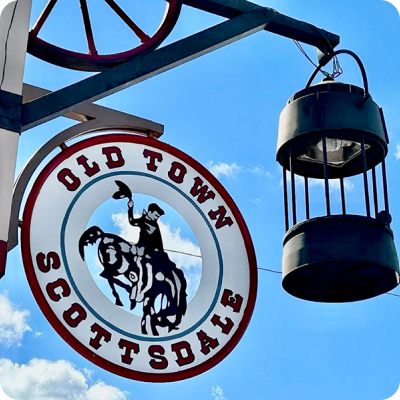Strike While the Rates Are Low: Low Interest Rate Planning Strategies for Passing on Your Wealth
COVID-19 has deeply impacted the economy in the United States and will likely continue to do so for some time. While most would agree that this pandemic is not a positive development, there are nevertheless some silver linings. One such silver lining is that certain powerful estate planning strategies have become much more attractive and feasible based on the current low interest rate environment. If you have a relatively large estate (over $10 million individually or $20 million as a married couple), you may want to talk with your estate planning attorney about the following planning strategies.
1. A Grantor Retained Annuity Trust (GRAT) is a tool that can be created by an experienced estate planning attorney to transfer significant wealth at a reduced transfer tax cost. This strategy requires a grantor (the person creating the trust) to transfer accounts or property into a carefully drafted irrevocable trust. The trust is designed to pay the grantor a stream of income at least annually and over a specific term of years. At the end of the specified term, the payments end and any property left in the trust not paid to the grantor is transferred (gift tax-free) to a third-party remainder beneficiary. This beneficiary is usually a child or descendant of the grantor.
The goal of a GRAT is for the assets in the trust to grow faster (at a higher interest rate) than the low interest rate published by the Internal Revenue Service (IRS), also known as the Section 7520 rate, used to calculate the present value of the payments made back to the grantor. If this occurs, the accounts or property remaining in the GRAT are transferred to the remainder beneficiaries free of gift taxes.
The following factors can impact the effectiveness of a GRAT:
The health of the grantor and whether the grantor can be expected to live beyond the GRAT term
The interest rate (Section 7520 rate) for the month in which the accounts or property are transferred to the GRAT
The nature of the accounts or property being contributed to the trust and their growth potential
The remaining lifetime gift tax exclusion amount available to the grantor
It is also important to note that the creation of a GRAT will require the filing of a gift tax return to report the gift. With deliberate planning, however, the amount of the gift to be reported can be negligible.
2. A Charitable Lead Trust (CLT) can also offer significant tax savings if you intend to make charitable giving a part of your estate plan and legacy. This is particularly true in today’s low interest rate environment. Similar to a GRAT, a CLT is an irrevocable trust that makes payments out of the trust to a beneficiary (a qualifying charity) over a specified period and is tied to the IRS Section 7520 rate. The period can be a set number of years or for the lifetime of the grantor. Unlike a GRAT, however, a CLT names a charity as the recipient of the annual payments over the trust term. Upon completion of the trust term and payments, the accounts and property remaining in the trust pass to chosen beneficiaries (often children or descendants) free of gift and estate tax.
The value of the gift reported on the gift tax return for the year in which the gift was made is calculated as the difference between the amount of the initial gift and the present interest of the sum of all of the payments payable to the charity. Because that present interest value is calculated using the currently low Section 7520 rate, the aim is for the money and property in the CLT to grow at a higher rate, thus allowing more of the growth to be transferred tax-free to remainder beneficiaries at the end of the trust term. In addition, and depending upon how it is structured, a CLT can provide valuable income tax deductions during the grantor’s lifetime.
It is important to remember that the payments to the charity must be made each year regardless of the performance of the trust assets. Poor investment performance can result in the need to use trust principal to cover the required charitable payments.
3. Intrafamily loans are another often overlooked strategy to transfer additional wealth to family members without unnecessarily using up your gift tax and estate tax exemption amounts. These kinds of loans can be an excellent way to help family members recover from low credit scores or eliminate certain high interest commercial home loans, consumer debt, business loans, or education loans, all while keeping interest payments within the family rather than enriching commercial lenders.
In a low interest rate environment, you could loan a family member money using the Applicable Federal Rate (AFR) as the interest rate over the term of the loan. The loaned money could then be invested by the borrower in assets that are likely to grow faster than the AFR built into the loan. The difference between the AFR payable to the lender and the realized rate of growth of the invested loan proceeds would accrue to the benefit of the borrower and outside of your estate (leaving less to be taxed upon your death). Thus, you can indirectly transfer this growth to your family members without the need to report the “transferred” amount as a gift to the IRS.
As a reminder, even though these are intrafamily loans, this does not mean that they can be informal. Such loans must be properly documented with executed promissory notes and, where appropriate, secured with collateral as if they were arm’s-length transactions so that the IRS cannot reclassify all or part of the loan as a gift.
There are several other strategies beyond those discussed that can help you take advantage of these historically low interest rates. Now is a great time to give us a call so we can review strategies for taking advantage of low interest rates. Doing so can maximize your wealth and the wealth of succeeding generations, even in these economically challenging times. We are available for in-person or virtual meetings, as you prefer.







